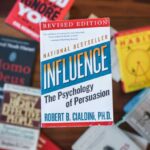Selling is often misunderstood as a tactic for manipulating people into making purchases they don’t really want. However, from the insights of renowned sales expert Jeffrey Gitomer, I’ve learned that selling is more akin to presenting a valuable gift. It’s about offering something meaningful that I’m eager to share, or at least let others know about, because I believe it can significantly enhance their lives. For me, selling is driven by the value I see in what I’m offering, not by the potential financial gain, which I view as a secondary benefit.
After studying Gitomer’s works, such as “The Sales Bible” and “Little Red Book of Selling,” it became clear that the key to successful sales lies in genuinely believing in the transformative impact of your product or service.
Belief in the Product
Successful salespeople have a deep-seated belief in their product or service and understand how it can improve a customer’s life or business. This belief isn’t shallow; it’s built on a thorough understanding of the product’s benefits and its capacity to solve specific problems.
Example: Consider a salesperson selling high-efficiency solar panels. They know how these panels reduce electricity bills and carbon footprints, providing both financial savings and environmental benefits, making them enthusiastic about recommending them to homeowners.
Ethical Responsibility
For salespeople who recognize the significant benefits of their offerings, sharing information about their products becomes a moral obligation. They focus on the value of the product or service and the benefits it brings, helping to build trust and foster lasting relationships with customers.
Example: A pharmaceutical sales rep believes in a new life-saving drug and feels it is their ethical duty to inform healthcare professionals about its benefits, ensuring it reaches those who need it most.
Customer Awareness
Effective salespeople act as educators and advisors, making an effort to understand the customer’s specific needs and explaining how their product addresses those needs. This involves clear communication and a personalized approach to demonstrate the product’s relevance.
Example: A software sales professional uses customized demonstrations to show how their program can streamline the specific organization’s operations, addressing the customer’s unique concerns about efficiency and cost.
Emotional Connection
The authenticity that stems from truly believing in a product helps in establishing trust with customers. Successful salespeople connect on an emotional level, understanding that emotions often guide purchasing decisions and show how the product can positively affect the customer’s life.
Example: A real estate agent connects emotionally with potential buyers by showing how a new home fits their vision of a dream home, emphasizing its warm, welcoming community and unique architectural features.
Long-Term Impact
Salespeople who believe in the long-term benefits of their products encourage customers to share their positive experiences. This not only helps in spreading good word-of-mouth but also motivates the salespeople to continually enhance their skills and knowledge.
Example: A fitness equipment salesperson keeps in touch with clients who have achieved their health goals using the equipment, encouraging them to share their success stories online, which in turn attracts more customers.
In summary, successful salespeople are motivated by a genuine desire to improve their customers’ lives. They view themselves not just as sellers but as partners in their customers’ journeys toward better outcomes. This approach creates a sales environment based on trust, value, and mutual respect, leading to higher customer satisfaction and loyalty.
How do you view sales?












